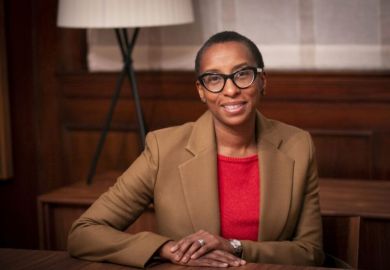University presidents and vice-chancellors come and go with unprecedented frequency today. News of firings and resignations fills the front pages of national and higher education dailies – and sometimes even national newspapers. At the same time, major universities seem to learn very little from their experiences to help them appoint better candidates the next time around.
Final decisions on hiring rest with boards of trustees or governors and regents; in the case of public universities in some states, they are also subject to approval by elected state governors. However, even the pretence of a full, inclusive and open procedure to identify and recruit new campus leaders, with all major interest groups participating, is rare. Even the long-standing pretence of the public “show and tell” with short-listed candidates offers university faculty, staff and students no real influence over appointments any more.
Of course, not all presidential terms that end prematurely reflect a failure to appoint the right person. The recent politically motivated, dishonest campaigns to oust Claudine Gay from Harvard and Elizabeth Magill from the University of Pennsylvania are cases in point. The sense that they were the wrong people for their jobs came very much from the off-campus political right and was tied up with animus around gender and – in Gay’s case – race, as well as anti-intellectualism and anti-elitism.
Nor were appointments ever fully open and democratic. But within my own lifetime of involvement in universities from the late 1960s, I have witnessed the situation deteriorate. And while there is no single cause or consequence of the ever more restricted search processes, it is surely a major contributor to both shortening presidential terms and declines in the number that could be deemed successful by fair observers.
With the additional layer in recent years of highly paid national executive search firms, most of which do not specialise in academia, searches take longer and are much more expensive, even as both the channels of inputs and the volume of possible candidates steadily decline. The traditional role of both present administrators and faculty nominations to search committees has become meaningless, and periods of vacancy – that is, without an acting or interim president – are more common, even as the range of issues requiring close executive oversight expands.
The causes are clear: the people appointed – in traditional terms, entrusted to govern and lead universities – lack interest in and knowledge of both the foundations of higher education and the strengths, limits and needs of their own institutions. Why? Because university communities have no role in the selection of external boards and their chairs either.
The first presidential search I witnessed at OSU – from close up, as a member of the President’s and Provost’s Advisory Committee – continues to astonish to this day. Before a regular set of search procedures began to function, the wealthiest and most powerful trustee, Leslie Wexner, flew in his private jet with another trustee to Nashville, where they appeared unannounced at the back door of the Vanderbilt University president’s residence.
Now ending his career notoriously in his second tenure as president of West Virginia University, E. Gordon Gee has held more presidencies than any other American administrator. Wexner wanted him back despite a controversial previous term at OSU.
Not a scholar, administrative planner, or campus leader, he was a crowd pleaser beloved by students. But during both his terms, his support from the faculty wore thin for multiple reasons, from endless empty rhetoric and broken promises to anti-academic cost-cutting. He eventually “retired” after being warned that his regular gaffes and controversial statements could end in dismissal.
By 2013, Ohio State’s lack of a black leader was noteworthy and the results of an apparently normal search unsurprisingly ended with the appointment of Michael V. Drake, then president of the University of California at Irvine. But the clear needs of the university – according to faculty, staff, students and public – were irrelevant to the entire search process. Drake was the least knowledgeable, interested, active and engaged president I had observed. His rhetorical promotion of minorities was never enforced with programmes, goals and timetables. The percentage of black actually students fell.
After his term ended, a national search conducted through an executive search firm (not higher education-focused) led to the appointment in 2020 of Kristina Johnson. An engineer, she had academic achievements and had been a high-tech business executive, but she had never led an individual university campus and had served as chancellor of the State University of New York system for less than three years. Having not given its only previous female president, Karen Holbrook, a fair opportunity, the university was under pressure to appoint a second one.
Opinions about her service conflict, but she resigned after only two years, having made no lasting contributions and having formed no relationships with faculty or students.
To find her replacement, the board did create two so-called advisory committees, one of which was of faculty – but almost exclusively those with administrative appointments. The entire faculty was spammed not with requests for nominations but with suggestions for “creating a profile” of desired characteristics. No suggestions were apparently followed up. Two open meetings with two trustees each attracted only a handful of faculty since everyone knew any input from them was irrelevant. Only the expensive California search firm’s input was valued, it seems.
A former naval officer, “Top Gun” Ted Carter, who took over on 1 January, is by far the least qualified CEO of a major US university in the last century. He only holds a bachelor’s degree from the US Naval Academy, which he went on to run for five years, after a brief stint heading the US Naval War College, which does not grant degrees. He has no academic teaching experience or publications and was head of the relatively small University of Nebraska state system for less than three years. This lack of relevant experience is glaring, particularly given the fate of his predecessor.
I must ask: are there more damning indictments of institutions of “higher education” than a failure to learn even from their most recent past experiences?
Harvey J. Graff is Professor Emeritus of English and History, inaugural Ohio Eminent Scholar in Literacy Studies, and Academy Professor, Ohio State University. He is writing Reconstructing the “Uni-versity” from the Ashes of the “Mega- and Multi-veristy”.
Register to continue
Why register?
- Registration is free and only takes a moment
- Once registered, you can read 3 articles a month
- Sign up for our newsletter
Subscribe
Or subscribe for unlimited access to:
- Unlimited access to news, views, insights & reviews
- Digital editions
- Digital access to THE’s university and college rankings analysis
Already registered or a current subscriber?








